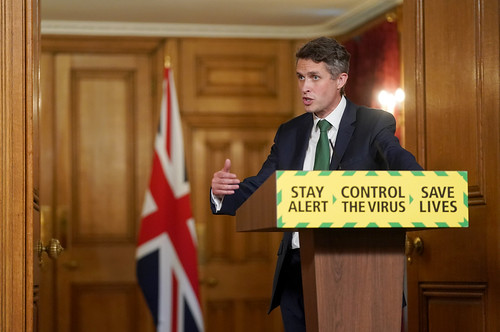Unveiled: The new ‘super lab’ testing deadly viruses in a secretive UK location
Jenny Harries #JennyHarries

The Vaccine Development and Evaluation Centre (VDEC) will study emerging threats (Picture: PA)
The government has unveiled a state-of-the-art research lab where scientists will work to bolster Britain’s defences against future pandemics.
The Vaccine Development and Evaluation Centre (VDEC), at the Wiltshire science and defence complex of Portdon Down, is at the forefront of efforts to prepare the UK against a hypothetical ‘Disease X’.
A catch-all concept describing the next pandemic threat, Disease X has become a hot topic in the wake of the Covid-19 pandemic – but scientists had been calling for it to be taken seriously for years prior.
Professor Dame Jenny Harries, chief of the the UK Health and Security Agency (UKHSA), said: ‘We don’t know what it is but we can get ready for some virus families.
‘We can guess a little bit; we can look at changing the epidemiology of different viruses, we can look at changing climate and start to estimate, but we will never know 100%.’
One of the lab’s key missions is to help cut the time it would take to create a vaccine against pandemic threats to 100 days or less.
It took 362 days to develop a Covid vaccine, which researchers say saved 15 to 20 million lives in its first year alone and drastically eased the illness of many more who would have survived their Covid cases anyway.
Dame Jenny Harries said scientists can start to ‘get ready for some virus families’ (Picture: PA)
The government estimates that, had a vaccine been available 100 days into the Covid pandemic, the world would have been spared at least hundreds of thousands more deaths and trillions of dollars of economic damage.
The UK signed up to the so-called ‘100 Days Mission’ goal along with other G7 countries in 2021.
Scientists working at the VDEC will look at viruses and bacteria which bear the hallmarks of a threat and evaluate the effectiveness of existing vaccines against them.
Live viruses will be studied in specialist containment facilities, with a particular focus on those that do not yet have an effective vaccine and those where immunisation could be improved, such as flu, mpox or hantavirus.
Scientists hope to be able to develop a vaccine against the next threat in 100 days or less (Picture: PA)
It’s hoped the centre will help develop a range of prototype vaccines and tests that can be quickly adapted to new threats.
More: Trending
Dame Jenny added: ‘What we try to do here is keep an eye on the ones that we do know. For example with Covid, we are still here testing all the new variants with the vaccines that have been provided to check they are still effective.
‘But we are also looking at how quickly we can develop a new test that would be used if a brand new virus popped up somewhere.’
The Covid inquiry was told previous governments focused too much on preparing for an influenza pandemic rather than other disease types. Former prime minister David Cameron admitted this was a ‘mistake’.
Live virus samples will be kept in ultra-secure containment labs (Picture: PA)
Leading disease experts have spent years urging governments to prepare more seriously for future pandemics.
Mark Woolhouse, professor of infectious disease epidemiology at the University of Edinburgh, previously said he and a group of colleagues asked the World Health Organisation to prioritise work on a ‘Disease X’ in 2017.
In 2018, scientists came up with a list of likely hypothetical candidates – and one of them was a novel coronavirus related to Mers or Sars, which the Covid-19 virus turned out to be.
Speaking in 2021, Prof Woolhouse said: ‘I mean, it really couldn’t be more accurate than that. This new virus is so closely related to Sars, so they absolutely pinpointed it as one of the threats.
‘We thought that the next emerging pandemic might be a virus that we don’t even know about yet – quite frankly we thought it was the most likely scenario.
‘You could use the phrase, “It is when, not if.”’
Get in touch with our news team by emailing us at webnews@metro.co.uk.
For more stories like this, check our news page.
MORE : Scientists make major breakthrough that could stop Covid forever
MORE : Everything we know about the Covid Eris variant as infections rise in the UK
MORE : Why do some get cancer and others don’t? Scientists find ‘revolutionary’ answer
Get your need-to-know latest news, feel-good stories, analysis and moreThis site is protected by reCAPTCHA and the Google Privacy Policy and Terms of Service apply.